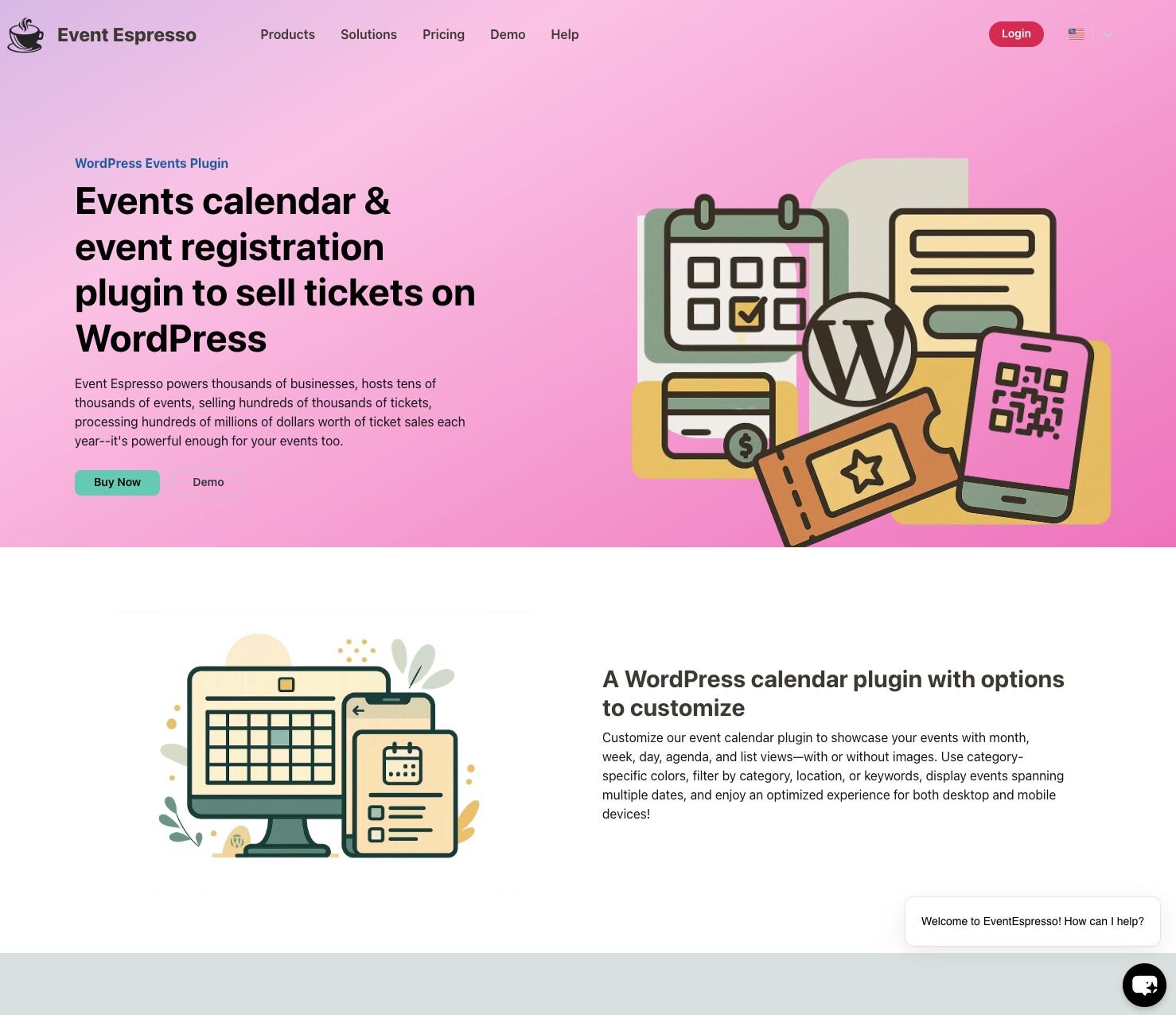🎉 Introducing Calendar+ a Powerful and Beautiful Events Calendar for WordPress
🎉 Introducing Calendar+ a Powerful and Beautiful Events Calendar for WordPress

Calendar+ is a modern WordPress events calendar plugin that helps visitors quickly discover what’s coming up with clean month/week/day/agenda views, helpful filters, and flexible styling. Pair it with Event Espresso when you need registrations and payments.
Posted by Garth on Tuesday, January 6, 2026
Read More

The new Event Espresso website is fast, easier to use, and brings more tools to manage your Event Espresso license keys and account.
Posted by Garth on Wednesday, November 27, 2024
Read More

Explore 14 unique Thanksgiving party ideas to enhance your celebration with tips for a joyful, festive gathering with family and friends.
Posted by Chinny Verana on Tuesday, August 20, 2024
Read More

Follow our step by step guide and learn how to write a press release for an event that grabs attention and maximize media coverage.
Posted by Chinny Verana on Thursday, August 15, 2024
Read More

Check out 10 cheaper alternatives to Eventbrite you can use as an event ticketing system for your next event.
Posted by Kimiko Sy on Friday, August 9, 2024
Read More